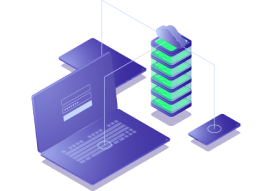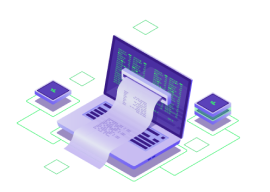Home / Services / Software Engineering / Platforms / Snowflake
Snowflake: Redefining Data Management for the Digital Age
Bring your data dreams to life with Snowflake and RTS Labs by your side – your ultimate partners for data-driven achievements!
Discover the Power of Snowflake
As experienced Snowflake partners, we’ve helped companies of all sizes unlock value from their data with the Snowflake Cloud Data Platform. Whether you’re evaluating Snowflake, migrating from legacy systems, or optimizing your modern data stack, we can guide you every step of the way.
Our Snowflake Services:
Strategy & Roadmapping
Implementation & Migration
Managed Services
Training & Enablement
A Proven Methodology
Discovery and Assessment
- Initial Consultation: We start with a one-on-one consultation to understand your unique data challenges and objectives.
- Technical Audit: Our team performs a comprehensive audit of your existing data infrastructure to identify bottlenecks and areas for improvement.
Strategy and Planning
- Tailored Roadmap: We create a customized implementation roadmap that aligns with your business goals, timelines, and budget.
- Resource Allocation: We identify the tools, technologies, and team members that will be involved in the implementation process.
Implementation
- Seamless Migration: We handle the heavy lifting of migrating your data to Snowflake, ensuring a seamless transition with zero downtime.
- Performance Optimization: Our experts fine-tune your Snowflake setup for optimal performance, from query optimization to data indexing.
Testing and Validation
- Rigorous Quality Assurance: We conduct rigorous testing to ensure data integrity and performance metrics meet our high standards.
- Comprehensive User Training: We provide hands-on training to your team, ensuring they’re well-equipped to manage the new Snowflake environment.
Launch and Support
- Go-live Support: We work closely with you to initiate the go-live process and ensure a smooth transition to your new Snowflake environment.
- Ongoing Support and Monitoring: We offer ongoing support and monitoring to ensure your Snowflake setup continues to meet your evolving needs.

Benchmarking analysis
Get ready to unlock the true power of Snowflake with our comprehensive benchmarking analysis. Our experts dive deep into your data infrastructure, performance metrics, and usage patterns to reveal valuable insights and provide actionable recommendations. Maximize the potential of Snowflake and optimize your data operations like never before.

Data strategy & governance
Embark on a journey to data excellence with our expertise in data strategy and governance. We help you define clear data goals, establish robust governance frameworks, and implement best practices. With a well-defined roadmap in place, you can confidently harness the power of your data assets, make informed decisions, and propel your business forward.

Architecture & integration
Build a scalable and efficient data ecosystem with our data architecture and integration services. Our team collaborates closely with you to understand your unique needs and craft a tailored solution. Seamlessly integrate diverse data sources, streamline workflows, and unlock data-driven insights that fuel your organization’s growth.

Migration made easy
Experience a smooth and efficient transition to Snowflake with our migration services. Our experienced team guides you through the process, minimizing disruption to your operations. We handle data migration, system integration, and performance optimization, empowering you to leverage Snowflake’s advanced capabilities with ease.

Snowflake operations
Keep your Snowflake environment at its best with our comprehensive operations services. We provide ongoing monitoring, performance tuning, and troubleshooting to ensure optimal performance. Benefit from our deep expertise in Snowflake administration and focus on extracting maximum value from your data.

Snowflake implementation
Step into a world where data becomes your greatest asset. With our Snowflake implementation services, we empower organizations to embark on a transformative journey of modern data analytics. Our expert team will guide you through a seamless implementation process, ensuring that Snowflake becomes the beating heart of your data infrastructure. With Snowflake, the possibilities are limitless, and we’re here to help you navigate this exciting frontier with confidence and success.
Experience the Power of Partnership

Holon Health
- Jason Herzog | CEO
Why choose RTS Labs?
Unparalleled Snowflake Expertise
At RTS Labs, we pride ourselves on our unrivaled expertise in Snowflake implementation. Our team of seasoned professionals has undergone rigorous training and possesses an in-depth understanding of the platform’s capabilities and best practices.
Tailored Solutions for Your Needs
We understand that every business is unique, and that’s why we take a customized approach to Snowflake implementation. We work closely with you to analyze your specific requirements, assess your data infrastructure, and design a tailored solution that aligns perfectly with your goals and objectives.
Seamless Integration and Migration
Implementing Snowflake doesn’t have to be a disruptive process. Our team excels in seamless integration and migration, ensuring a smooth transition from your existing data systems to Snowflake. We handle all the technical complexities, allowing you to focus on your core business activities while experiencing minimal downtime and disruption.
Proven Track Record of Success
When choosing a partner for your Snowflake implementation, it’s crucial to look at their track record. At RTS Labs, we have a proven history of delivering successful Snowflake implementations for a diverse range of clients. Our portfolio of satisfied customers stands as a testament to our expertise, professionalism, and commitment to excellence.
Case Studies

Rewriting the Rules of Legal Work with AI
PLG’s streamlined approach enables organizations and individuals to trust their legal matters to a reliable partner capable of meeting today’s rigorous demands with AI.

Driving SaaS Innovation with Analytics Expertise
Ecom Engine partnered with RTS to explore analytics with a proof of concept using Azure Data Explorer (ADX). RTS provided architecture recommendations and a roadmap for decision-making.

Streamlining Success with Salesforce Solutions
RTS delivered solutions for commissions tracking, sales pipeline, marketing, and call center operations, with robust reporting and streamlined DevOps using GIT and Salesforce CLI.

Innovation That Drives Business Growth
We transformed an HSA trustee’s business with a secure, mobile-responsive portal, unifying participant data, reducing support calls, and boosting customer satisfaction by 40%.

Agile Solutions for Rapid Results
We connected and measured payment tool capabilities for a Finance client, using agile development to enable seamless access, tracking, and availability of payment applications.

Transforming Data into Business Insights
Our scalable cloud platform transformed data operations, increasing market share by 19%, improving decisions, and boosting enterprise value to over $3 billion for a pharmaceutical business.
Frequently Asked Questions
What is the typical timeline for a Snowflake implementation project?
The typical timeline for a Snowflake implementation project is 3-6 months. However, this can vary depending on the size and complexity of your data environment, as well as the level of customization required.
What are the benefits of working with a certified Snowflake partner?
There are many benefits to working with a certified Snowflake partner, including:
- Expertise: Certified Snowflake partners have the knowledge and experience to help you implement Snowflake successfully.
- Resources: Certified Snowflake partners have access to a wide range of resources, including tools, training, and support.
- Best practices: Certified Snowflake partners follow Snowflake’s best practices and guidelines, ensuring that your implementation meets the highest standards.
- Peace of mind: Working with a certified Snowflake partner gives you the peace of mind knowing that you are working with a trusted and experienced provider.
What are the different types of Snowflake consulting services available?
The different types of Snowflake consulting services available include:
- Data migration and warehousing: Helping you to migrate your existing data to Snowflake and build a new data warehouse.
- Data lake modernization: Helping you to modernize your data lake using Snowflake.
- Analytics optimization: Helping you to optimize your Snowflake environment for performance and cost.
- Performance tuning: Helping you to tune your Snowflake environment for optimal performance.
- Security and compliance: Helping you to secure your Snowflake environment and ensure compliance with all applicable regulations.
How do I choose a Snowflake consulting partner?
When choosing a Snowflake consulting partner, you should consider the following factors:
- Experience: Make sure to choose a partner with experience in implementing Snowflake for clients in your industry.
- Certifications: Look for a partner that is certified by Snowflake. This shows that they have the knowledge and expertise to implement Snowflake successfully.
- References: Ask for references from previous clients and check their reviews online.
- Cost: Get quotes from multiple partners before making a decision.
What should I expect from a Snowflake consulting partner?
A good Snowflake consulting partner will work with you to understand your business needs and develop a customized implementation plan. They will also provide you with ongoing support throughout the implementation process and after you have gone live with Snowflake.
Frequently Asked Questions
What is the typical timeline for a Snowflake implementation project?
The typical timeline for a Snowflake implementation project is 3-6 months. However, this can vary depending on the size and complexity of your data environment, as well as the level of customization required.
What are the benefits of working with a certified Snowflake partner?
There are many benefits to working with a certified Snowflake partner, including:
- Expertise: Certified Snowflake partners have the knowledge and experience to help you implement Snowflake successfully.
- Resources: Certified Snowflake partners have access to a wide range of resources, including tools, training, and support.
- Best practices: Certified Snowflake partners follow Snowflake’s best practices and guidelines, ensuring that your implementation meets the highest standards.
- Peace of mind: Working with a certified Snowflake partner gives you the peace of mind knowing that you are working with a trusted and experienced provider.
What are the different types of Snowflake consulting services available?
The different types of Snowflake consulting services available include:
- Data migration and warehousing: Helping you to migrate your existing data to Snowflake and build a new data warehouse.
- Data lake modernization: Helping you to modernize your data lake using Snowflake.
- Analytics optimization: Helping you to optimize your Snowflake environment for performance and cost.
- Performance tuning: Helping you to tune your Snowflake environment for optimal performance.
- Security and compliance: Helping you to secure your Snowflake environment and ensure compliance with all applicable regulations.
How do I choose a Snowflake consulting partner?
When choosing a Snowflake consulting partner, you should consider the following factors:
- Experience: Make sure to choose a partner with experience in implementing Snowflake for clients in your industry.
- Certifications: Look for a partner that is certified by Snowflake. This shows that they have the knowledge and expertise to implement Snowflake successfully.
- References: Ask for references from previous clients and check their reviews online.
- Cost: Get quotes from multiple partners before making a decision.
What should I expect from a Snowflake consulting partner?
A good Snowflake consulting partner will work with you to understand your business needs and develop a customized implementation plan. They will also provide you with ongoing support throughout the implementation process and after you have gone live with Snowflake.